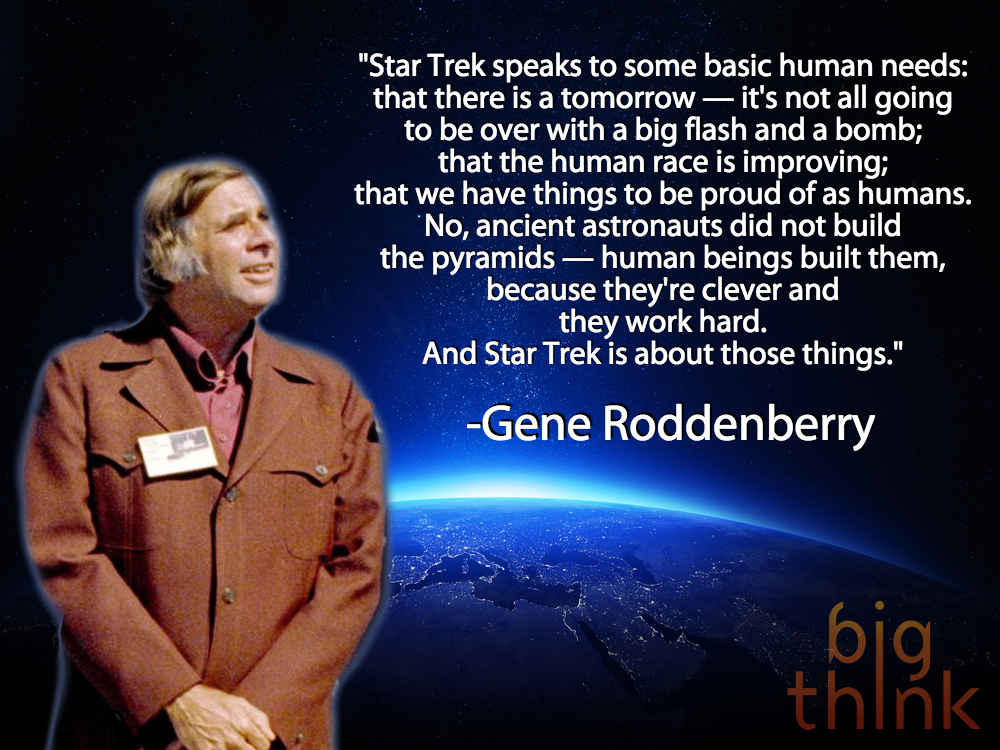The dark wisdom behind Star Trek’s “Prime Directive”

- In the Star Trek universe, the Federation has a “Prime Directive” — do not interfere in the natural development of a planet that is less developed.
- The “cobra effect” of the British Raj in India provides a real-life example of how even the best intentions of interventionists can have dire consequences.
- In Star Trek, as in life, the Prime Directive is regularly — and seemingly rightly — violated. But a good rule can still have good exceptions.
Most of the time, people try to do what’s best. Whether it’s that politician you hate or the family member who always disagrees with you on religious issues, they probably believe they are doing the right thing. The problem is that life laughs at our plans. The road to hell is paved with good intentions.
This idea that good intentions, alone, can be hugely problematic is what underpins Star Trek’s “Prime Directive,” which is the cast-iron, inviolable code of the United Federation of Planets that happens to get broken…a lot.
The Prime Directive
In the Star Trek universe, the Federation (the goodies) has a principle: “No starship may interfere with the normal development of any alien life or society.” Usually, this is taken to apply only to “pre-warp technology” civilizations — those of a less developed age. The motivating idea is that intervening in the natural progress of a civilization is bad: It never works, and more often than not stunts the “normal development” of a society.
Yet for such a supposed keystone of Federation foreign policy, few people tend to obey it. The exceptions are so many that it seems to break rather than make the rule. In Star Trek Into Darkness, Captain Kirk interferes in a native planet’s trajectory to prevent a natural disaster from killing off the population. In Star Trek (the original series), a cultural “observer” named John Gill acts to overthrow a definitely-not-the-Nazis government. In The Next Generation, Captain Picard decides it’s okay to save a planet from an earthquake, seemingly just because his crewmate, Data, took a romantic interest in one of its inhabitants.
The Prime Directive gets broken when a crew is in danger, when a species faces enslavement or extinction, or just whenever a captain seems to think it’s worth it. The Prime Directive is treated less like a rule and more like a loose guideline.
The ethics of the Prime Directive
The very fact that the non-intervention of the Prime Directive gets broken at least a few times in Star Trek implies it’s not fit for purpose. But fiction, especially fiction from a country with a history of foreign intervention, doesn’t always align with the real world. (In fact, Star Trek enjoyed its heyday during the Vietnam War, when interventionist debates were on everyone’s lips.)
So, how useful — or ethical — is the Prime Directive in the real world? The philosopher John Stuart Mill, living in 19th century Britain, believed imperial ambitions — the ultimate in intervention — were necessary to bring peace and progress to “barbarian” peoples. Any culture that didn’t resemble a modern, European nation-state was inferior and infantile, he thought. It was, then, the moral duty for more developed nations to bring science, medicine, and the rule of law to these places.
Today, this is often thought unpalatable. It rings of Eurocentrism and ignorance. It sounds like making “lesser” people a bit more like us. But Mill was no Cecil Rhodes or King Leopold. He was a human-rights-loving liberal. For him, intervention was for the “greater good” not of the imperial power, but of the people. Should we just watch civil wars, genocides, or judicial abuses that take away the freedoms of millions?
The “cobra effect”
The problem with idealistic imperialism — from Rome to Britain — is that it fails to see what the Star Trek’s Prime Directive does. Often, when alien cultural and legal traditions are parachuted into another culture with a different history, the results are far from what was intended.
A pretty funny example comes from British rule in India. The British Raj had got it into their administrative heads that it was time to do something about the number of venomous snakes in Delhi. So, they offered the native Delhi population a bounty for any dead cobra they could provide. At first, it was great: dead cobras, safer streets, and richer Delhiites. Over time, however, wily and unscrupulous folk realized they could breed cobras, kill them, and then collect their prize. The British got wise to the trick and cancelled the policy, which only made matters worse. Faced now with thousands of valueless cobras, the hustlers simply released them back into the streets.
It’s a great example of how even well-intentioned intervention can have unforeseen consequences.
Not so boldy
Although no doubt many people suffered from a plague of cobras, this example is the least of it (a similar, more deadly, example is Mao’s attempt to cull the sparrow population, which exacerbated a famine and so killing untold numbers). When intervention is done badly, when good intentions end up in dire consequences, millions can die.
Societies need to develop in their own ways and on their own terms. There are few things in the history of humanity that work best to the tune of one person’s ideas. The “butterfly effect,” which is about how tiny changes in meteorology can have colossal effects, applies all the more to complex human societies. We are, each of us, highly unpredictable, complicated, and very often far from rational. If you put us together in societies of millions and over thousands of years, then it’s hard to really predict anything with certainty.
This is the wisdom of the Star Trek’s Prime Directive. This is not to say “stand by and let evil happen.” The surfeit of violations by Captain Kirk et al. is proof of the fact that a good rule can have good exceptions. It is simply the wisdom that social and political development are difficult to understand and predict. Intervention is not to be done rashly, if at all. No world leader or administration, no one ideology or fad, can see what will happen when you stumble into another people’s life. Sometimes, it’s best (if hard) to let others get on with things.
Jonny Thomson teaches philosophy in Oxford. He runs a popular account called Mini Philosophy and his first book is Mini Philosophy: A Small Book of Big Ideas.




